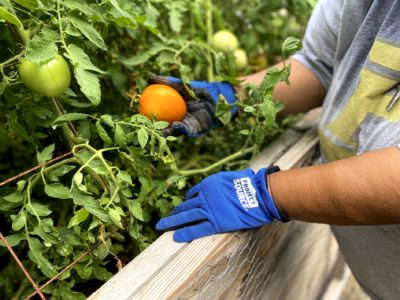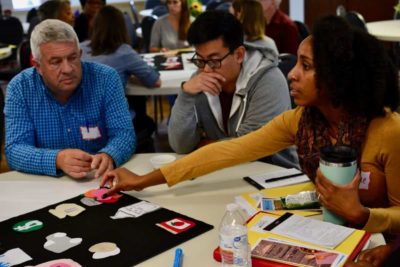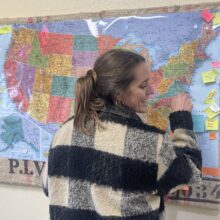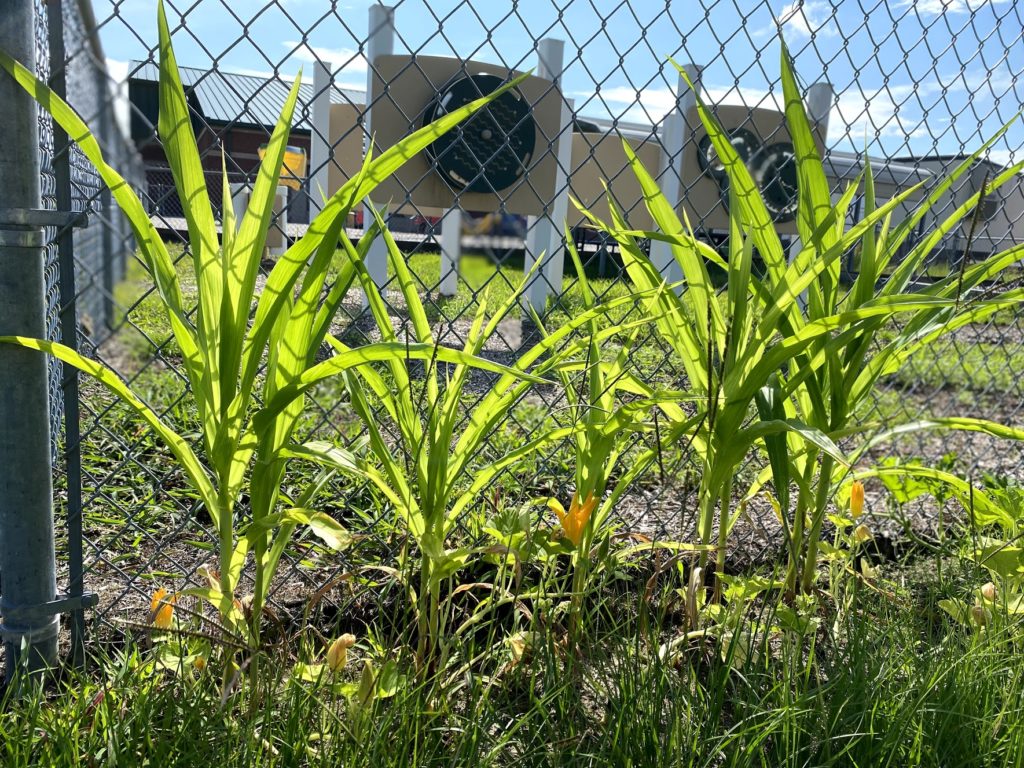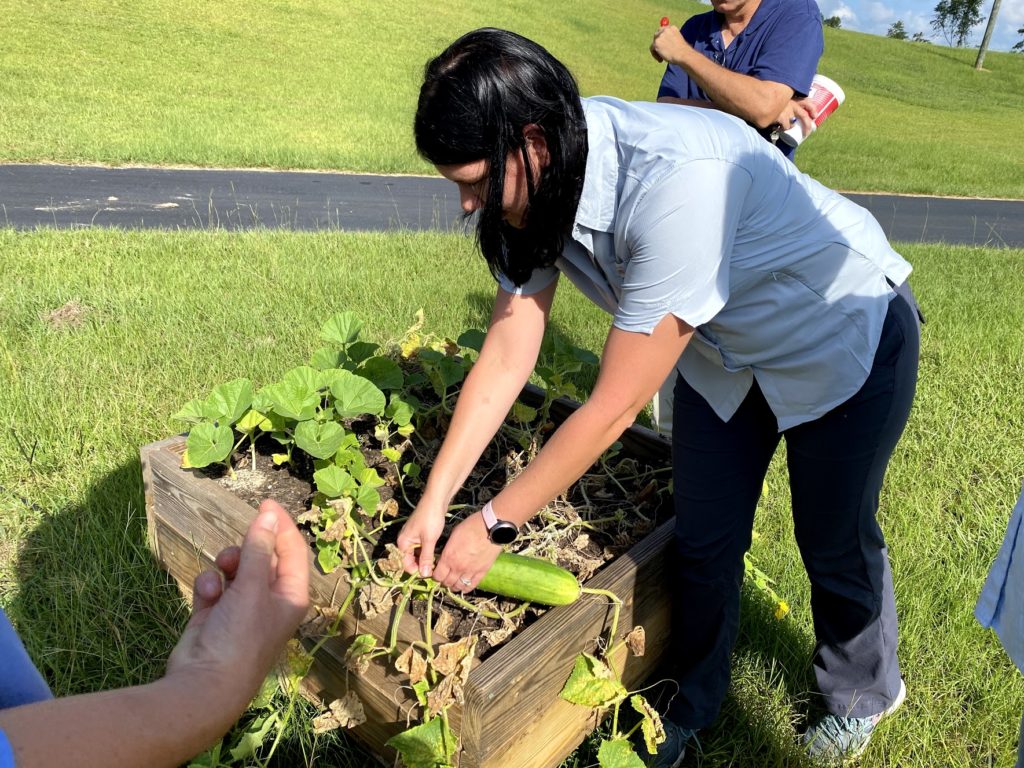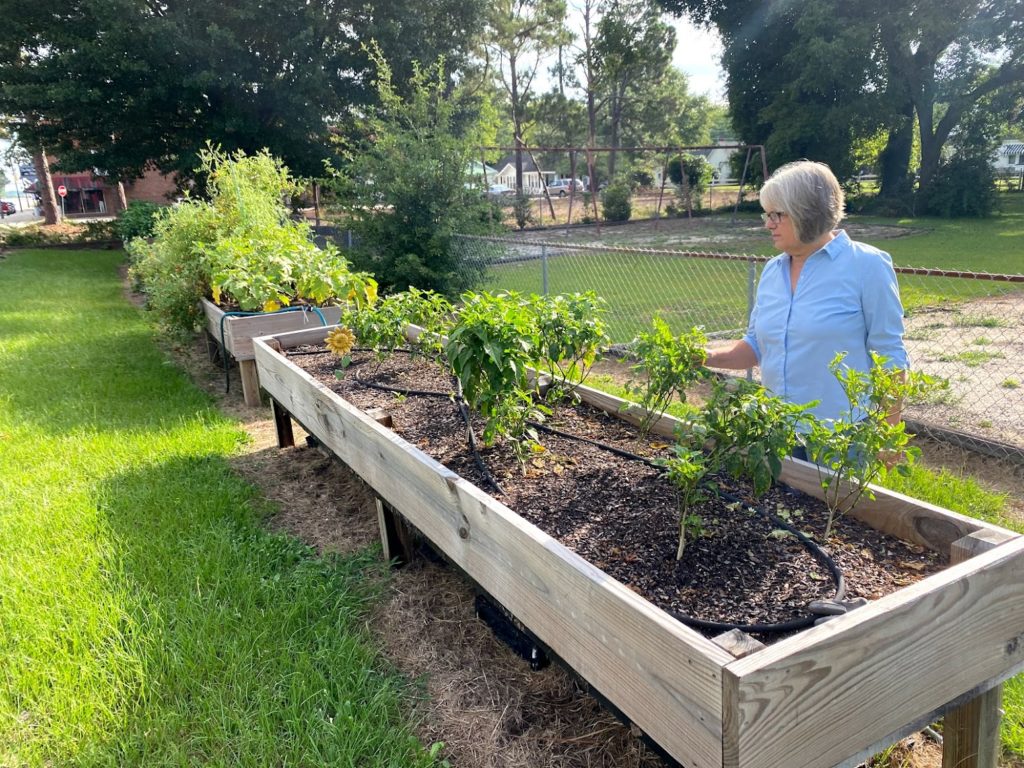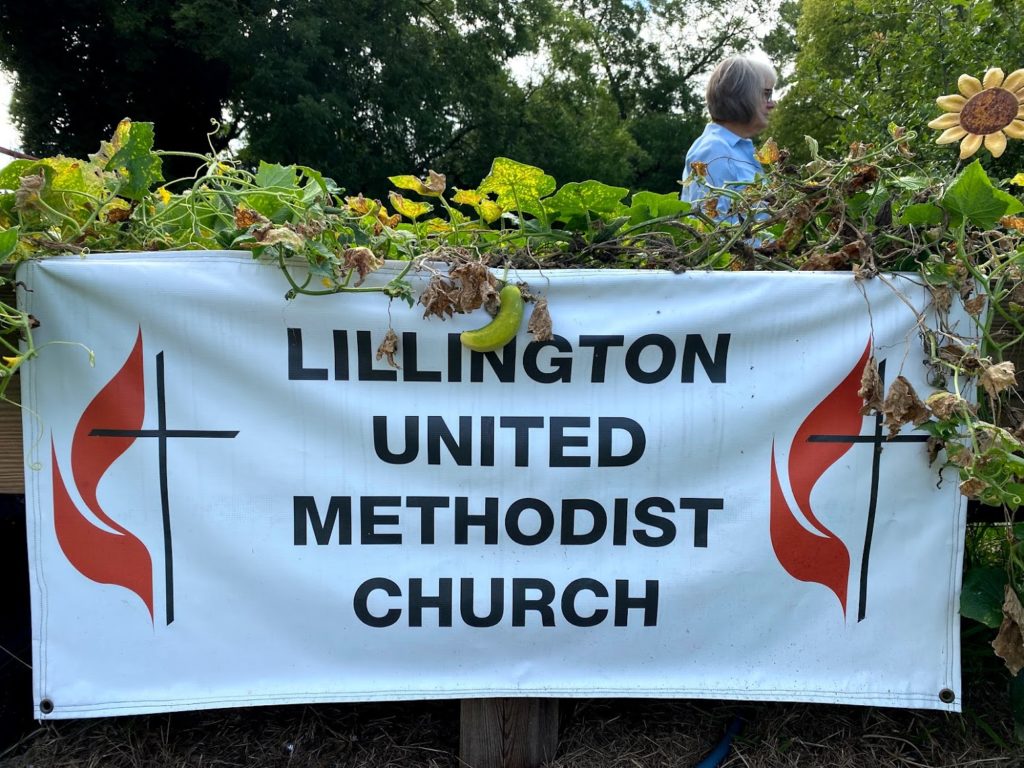Shannon Brooks, an exceptional children’s (EC) educator at Lillington-Shawtown Elementary was walking through a parking lot in April and noticed a truck pulling in to turn around. In the bed of the truck was the frame for a raised garden.
She jokingly said to the driver, “Have you got any more of those? Because that’s exactly what I need!”
The man driving the truck was Roger Earp, coordinator for the garden program at Lillington United Methodist Church (UMC). His window was rolled down. Brooks recalled him saying:
“We’ve been looking for people like you.”
Roger Earp, garden program coordinator for Lillington UMC
Satellite gardens
Fast forward to August, and four raised garden beds sit beside the playground at Brooks’ school. She is part of Lillington UMC’s satellite garden program, which gives starter kits to gardeners willing to harvest in their backyard, with the understanding that they donate at least 25% of their produce to the church’s food initiatives.
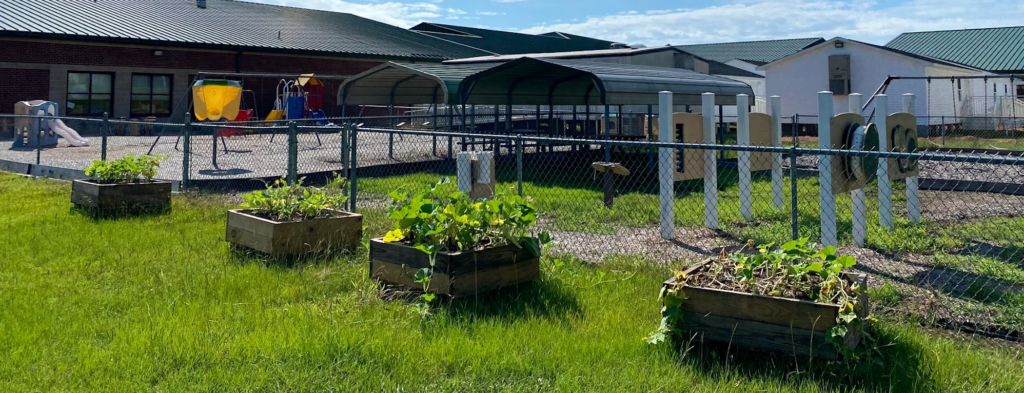
The satellite gardens started because of difficultly recruiting volunteers for Lillington UMC’s other garden initiatives due to COVID-19. The church has a 2-acre farm and raised garden beds off the main road in Lillington as well.
Since congregation members were at home more often due to the pandemic, the satellite garden concept grew out of the quarantine mentality — people homebound would be more willing to garden in their own backyards than with volunteers at the church.
Lillington UMC was able to provide a starter kit of soil, a raised garden bed frame, fertilizer, and seeds. Funding from this came from the church and a grant they received in 2020 from Resourceful Communities. Currently, the church has seven satellite gardens, including the one Brooks tends at the school.
How did this EC educator get growing?
Brooks was planting things in the classroom and saw how engaged her students were when it came to dirt.
“My kids love gardening, I just wasn’t a great gardener,” she said, laughing.
She started with flowers, and if she killed them, she would buy new ones. Brooks would tear the dead plants up from the soil, and study the roots with her students. Keeping them engaged and showing how things can grow was — and is — a priority for her.
Two years prior to her serendipitous run-in with Earp, Brooks took leftover bricks from a home project and made a small garden outside the classroom. She started transplanting things from inside to outside, but eventually the garden had to be leveled for incoming trailers.
She had involved some fellow teachers who saw how much their students lit up when it came to gardening and having the raised garden beds was accessible for Brooks’ students who use wheelchairs or have other physical disabilities.

Corn growing beside playground. Caroline Parker/EducationNC 
Pumpkin vines at Lillington-Shaw Elementary. Caroline Parker/EducationNC 
Shannon Brooks with the raised garden beds at Lillington-Shaw Elementary. Caroline Parker/EducationNC
“Student interest is important. And that’s for EC or regular ed, like, if you can find out what drives your kids, and what is the passion of your kids, you can teach them anything, you just have to figure out what motivates them, and also how they learn.”
Shannon Brooks, educator at Lillington-Shaw Elementary
In the short growing season since the beds were brought in, the school grew cucumbers and green beans and have planted gourds, pumpkins, and corn for the fall season. Brooks attends the bimonthly satellite growers group hosted by Lillington UMC and Earp. It is part of the church’s garden program, and a way for participants to share resources and stories, struggles and successes.
It’s educational for this teacher with a burgeoning green thumb.
“It’s kind of like a labor of love. Like no, I’m not good at this, but my kids like it and that’s the most important part,” Brooks said.
Growing with Lillington UMC
In 2019, Ray Stanley overheard some women at church talking about starting a garden. Soon after, he donated the watermelon harvest from a 2-acre property he owns for the church to sell. But instead of selling, they set up a tent at the local hardware store and gave away the produce. They had a tip jar and received $1,500 to donate to the local food pantry.
Claudia Farr, who has been leading the initiative since the beginning, said that donation really opened her eyes and she thought there was something special happening.
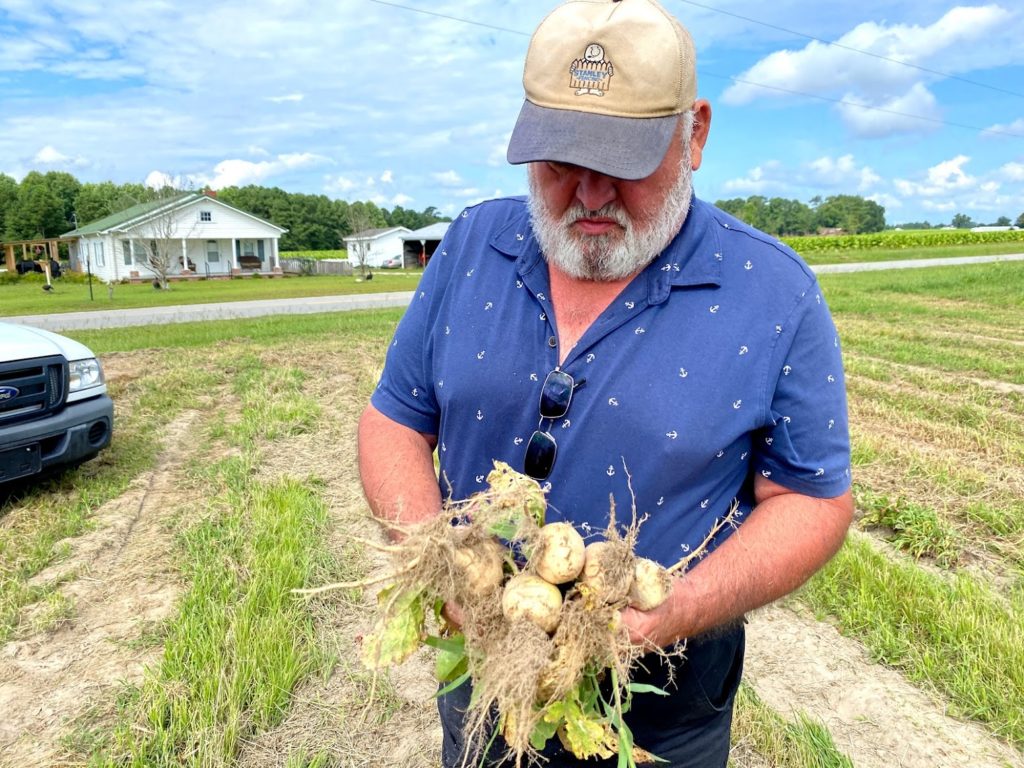
Farr then applied for a grant from Resourceful Communities and received funding in 2020 that allowed the church to hire Earp to coordinate the garden program. Both Earp’s parents are farmers, so he received a lot of growing eduction secondhand. He is a veteran and took the Soldiers to Agriculture class at North Carolina State University. Earp loves that in farming, he gets to do something different every week.
“I don’t think I’ve ever had this much fun with the job,” he said.
Along with the satellite gardens and the 2-acre farm, Lillington UMC put raised garden beds beside the church. Produce from those raised beds, the satellite gardeners, and Stanley’s property go to a safe house in the area, a pay-as-you-can restaurant called Ladles of Love, and five other food pantries.

Claudia Farr with her church’s raised garden beds. Caroline Parker/EducationNC 
Lillington UMC sign. Caroline Parker/EducationNC
This year, they have picked 73 bushels of turnips, collards, radishes, kale, peas, squash, zucchini, cucumbers, and potatoes in total and nearly 2,000 ears of corn. In the coming months, they will conduct an evaluation to be more efficient for next year. On the farm, okra and peppers are still growing.
Recommended reading
